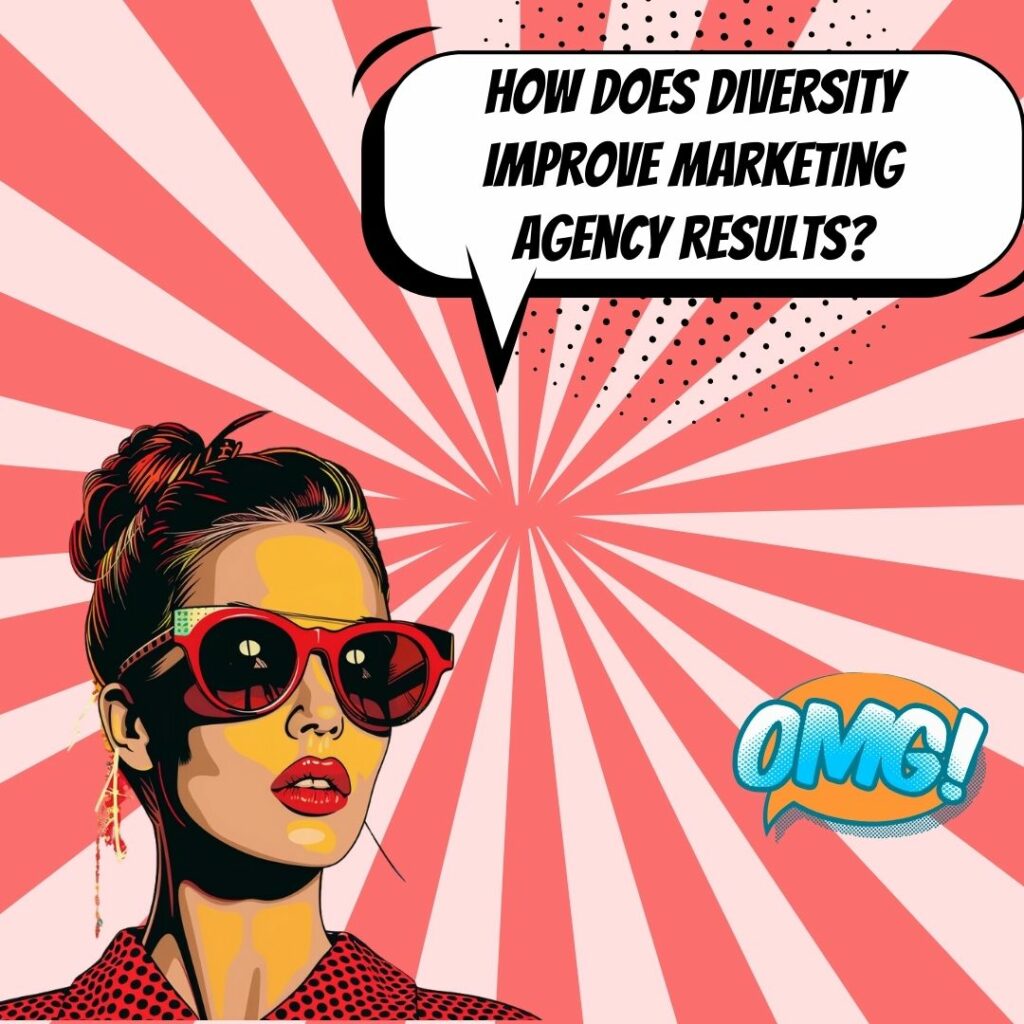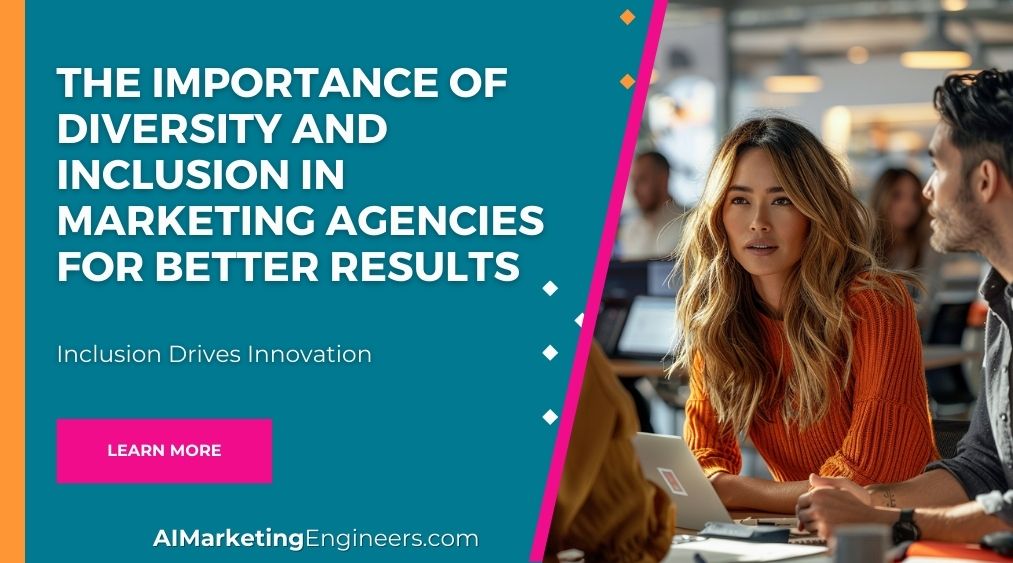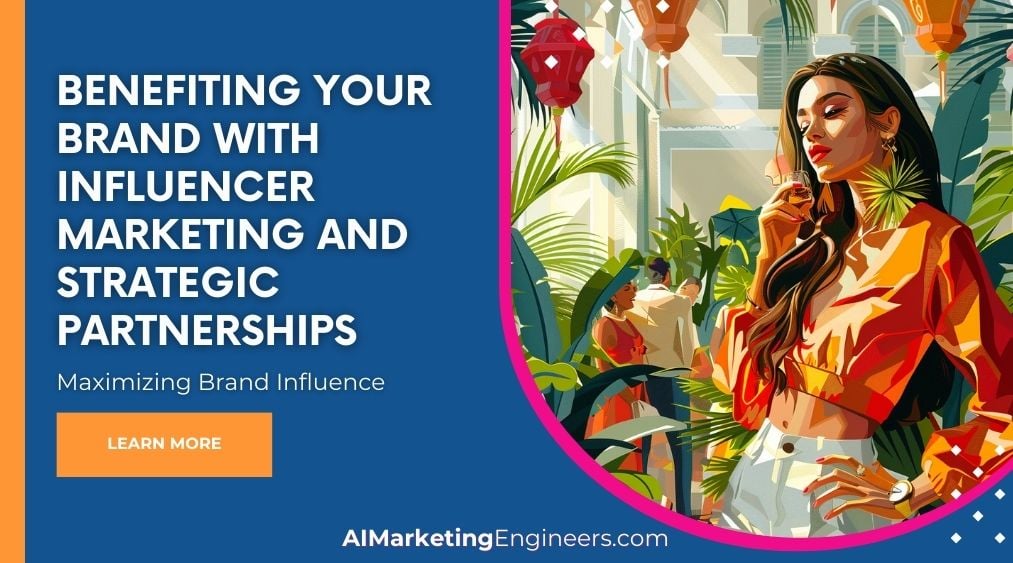Key Takeaways
✅ Authentic Representation and Understanding of Diverse Audiences: Diverse marketing teams help agencies authentically represent various communities, leading to effective campaigns that resonate with broad audiences. Agencies like AndHumanity and OMG UNITE exemplify this practice.
✅ Innovative Solutions and Enhanced Creativity: Varied perspectives within diverse teams ignite creativity and innovative solutions. The Diversity Marketing Consortium showcases success through its support for underrepresented founders, enhancing creative output.
✅ Improved Brand Loyalty and Social Change: Inclusion fosters stronger customer connections, boosting brand loyalty while promoting social change. Agencies like AndHumanity elevate marginalized voices, driving both engagement and societal impact.

Introduction
In the fast-paced world of marketing, diversity and inclusion are more than just buzzwords; they are essential elements that drive better results. Marketing agencies that prioritize diverse and inclusive teams are not only more creative and innovative but also better equipped to connect with a wide range of audiences. By embracing different perspectives and backgrounds, these agencies can craft more compelling and effective campaigns that resonate on a deeper level.
Diversity and inclusion in marketing agencies go hand in hand with business success. A team that reflects the varied demographics of the market can better understand and cater to the unique needs and preferences of different consumer groups. This approach not only enhances brand perception and loyalty but also leads to more impactful and inclusive marketing strategies. In today's globalized market, the importance of diverse representation in marketing cannot be overstated.
Top Statistics
| Top Statistics | Insight |
|---|---|
| 57% of consumers are more loyal to brands that commit to addressing social inequities in their actions. | This figure highlights the importance of brands taking tangible steps toward social equity to cultivate customer loyalty. |
| 70% of Gen Z consumers are more trusting of brands that represent diversity in ads. | With Gen Z being a key demographic, brands must prioritize inclusive representation in their marketing strategies. |
| Multicultural consumers make up almost 40% of the U.S. population, but multicultural media spending is only 5.2% of total ad and marketing spend. | There's a significant gap between the market potential of multicultural consumers and how much is spent reaching them, suggesting untapped opportunities. |
| 64% of consumers report taking action after seeing ads they consider diverse or inclusive. | Diverse and inclusive ads not only improve brand image but also drive consumer action. |
| 44% of consumers deem diversity, equity, and inclusion more important than they did three years previously. | The increasing importance of DEI among consumers indicates a shifting market trend that brands need to adapt to. |
Why Diversity Matters in Marketing
Diversity in marketing agencies is crucial for creating campaigns that resonate with diverse audiences. A diverse team brings unique perspectives, experiences, and cultural understanding, leading to more effective and inclusive marketing strategies. Have you ever wondered why some ads fall flat while others make a significant impact? Often, it's the human touch and variety in viewpoints that make the difference. A homogeneous team may miss the mark on cultural nuances, whereas a diverse group is more likely to capture a wider range of experiences and sentiments. By embracing diversity, agencies can tap into the full spectrum of human experiences, making their campaigns more relatable and impactful.
Benefits of Inclusive Marketing
Inclusive marketing helps brands build stronger connections with their target audiences, fostering loyalty and trust. In a world where consumers are more socially conscious, demonstrating a commitment to diversity, equity, and inclusion (DEI) can enhance a brand's reputation. For instance, a study by Deloitte found that brands perceived as being diverse and inclusive are 25% more likely to have a higher profit margin than those perceived as not. It’s not just about feeling good; it also translates directly into business results. Inclusive marketing also helps in avoiding costly PR mishaps that arise from cultural insensitivity or misrepresentation, further solidifying the brand's standing in the market.
Challenges for Underrepresented Groups
Historically, women and people of color have faced significant barriers to accessing resources and opportunities in the marketing industry. These challenges often stem from systemic biases and lack of representation in leadership roles. Initiatives like the Diversity Marketing Consortium aim to address these disparities by providing pro bono services to underrepresented founders. But will these initiatives be enough to create long-lasting change? It’s a step in the right direction, but continued effort and commitment are required from all corners of the industry. Addressing these challenges also involves creating mentorship programs and support networks to empower underrepresented individuals within the industry.
Agencies Leading in Diversity and Inclusion
Agencies like AndHumanity, OMG UNITE, and Fresh Content Society specialize in multicultural, LGBTQ+, and disability marketing, ensuring authentic representation in campaigns. These agencies have successfully worked with diverse clients, delivering improved awareness and engagement among hard-to-reach audiences. Their success stories serve as proof that diverse teams produce better results. Do we see a pattern here? Inclusive strategies are not just morally right; they are effective and profitable. These agencies also serve as role models, inspiring others in the industry to adopt similar inclusive practices.
Best Practices for Implementing Diversity
Conduct diversity audits and workshops to identify areas for improvement. Developing culturally sensitive content and media strategies is crucial for authentic engagement. Foster genuine allyships and partnerships with diverse communities, ensuring that these relationships are not just performative but have real depth and impact. Lastly, ensure there is diverse representation within the agency itself, including leadership and advisory positions. By making these practices part of your agency's DNA, you create an environment where diversity and inclusion can thrive. Regularly revisiting and updating these practices ensures that the agency remains aligned with evolving societal norms and expectations.
The Future of Marketing Needs Diversity
As the marketing landscape continues to evolve, embracing diversity and inclusion is essential for agencies seeking to deliver impactful campaigns and drive positive social change. By prioritizing these values, agencies can build stronger relationships with their clients and the communities they serve, ultimately driving better results and a more equitable industry. Agencies that fail to prioritize diversity risk becoming obsolete in a market that increasingly values inclusivity. Future-proofing your agency involves not just adopting diverse practices, but also actively championing them within the industry.
AI Marketing Engineers Recommendation
Recommendation 1: Embrace a Diverse Workforce: The Importance of Diversity and Inclusion in Marketing Agencies for Better Results is underscored by an array of studies. According to McKinsey & Company, diverse companies are 35% more likely to outperform their competitors. To harness this potential, integrate varied perspectives within your team. This means actively recruiting individuals from diverse backgrounds, ensuring that your team reflects various races, genders, and cultural viewpoints. Such diversity fosters creativity and innovation, enabling your agency to better resonate with a wider audience.
Recommendation 2: Create Inclusive Campaigns: To optimize The Importance of Diversity and Inclusion in Marketing Agencies for Better Results, develop inclusive marketing campaigns that genuinely reflect the diversity of your audience. A study by Adobe found that 61% of consumers find diversity in advertising important. Go beyond tokenism by authentically showcasing diverse experiences and voices. Conduct thorough audience research to understand different segments and tailor your messages accordingly, ensuring representation is meaningful and contributes to building stronger connections with your audience.
Recommendation 3: Implement Bias-Reduction Tools: To address The Importance of Diversity and Inclusion in Marketing Agencies for Better Results, leverage technology to minimize bias in your processes. Tools like Textio can help create inclusive job descriptions, while AI-powered platforms like Pymetrics can ensure fairness in hiring by focusing on candidates' potential rather than pedigree. These tools help break down barriers and create more equitable opportunities within your agency, leading to a more diverse, motivated, and productive workforce.
Relevant Link
- Unlock the secrets of market penetration by mastering Campaign Reach and Audience Size
- Discover how analyzing user behavior and interaction patterns can provide valuable usage data
- Discover key factors for setting impactful campaign goals and marketing objectives
- Understand how user targeting and audience selection can enhance consumer profiling
Conclusion
In light of the discussion on The Importance of Diversity and Inclusion in Marketing Agencies for Better Results, the need for a diverse and inclusive marketing industry is crystal clear. Diversity is not just a buzzword; it’s a business imperative that enriches campaigns with unique perspectives and cultural understanding, making them resonate more genuinely with varied audiences. Inclusive marketing doesn't just benefit underrepresented groups—it fosters loyalty and trust, and enhances brand reputation across the board.
Nonetheless, challenges remain for women and people of color in accessing resources and opportunities. Initiatives like the Diversity Marketing Consortium are pivotal in addressing these barriers. Agencies such as AndHumanity and Fresh Content Society are leading the way by specializing in multicultural, LGBTQ+, and disability marketing, showcasing the tangible benefits of authentic representation.
Looking to the future, it’s critical that agencies prioritize diversity audits, culturally sensitive content, and authentic allyships. By embedding these values into their core operations, marketing agencies can build stronger, more meaningful relationships with their clients and the communities they serve. Ultimately, embracing diversity and inclusion isn't just the moral choice—it’s the pathway to better results and a more equitable industry.
FAQs
Question 1: What is Diversity, Equity, and Inclusion (DEI) in marketing?
Answer: DEI in marketing refers to the practice of creating inclusive marketing strategies that celebrate and respect the diversity of audiences, ensuring that all individuals feel represented and valued. It encompasses diversity, equity, and inclusion to create a holistic approach that promotes fairness, respect, and equal opportunities for all.
Question 2: Why is DEI important in marketing?
Answer: DEI is crucial in marketing because it helps brands connect with diverse audiences, builds trust, and enhances brand reputation. It also leads to increased customer loyalty, better employee acquisition and retention, and improved financial performance.
Question 3: What are the key components of DEI in marketing?
Answer: The key components of DEI in marketing include diversity (representation of different groups), equity (access and opportunity), and inclusion (acknowledging and valuing diverse experiences and perspectives).
Question 4: How does DEI impact consumer purchasing decisions?
Answer: DEI significantly influences consumer purchasing decisions. Studies show that 67% of consumers prefer brands that promote DEI, and 49% have stopped purchasing from brands that do not represent their values.
Question 5: What are the benefits of inclusive marketing campaigns?
Answer: Inclusive marketing campaigns lead to increased brand relevance, customer engagement, and loyalty. They also enhance creativity, innovation, and brand trust, ultimately driving business growth.
Question 6: How can brands ensure authenticity in their DEI efforts?
Answer: Brands can ensure authenticity by integrating DEI into their corporate culture, hiring diverse teams, and creating marketing strategies that reflect diverse experiences and perspectives. Authenticity is key to building trust with diverse audiences.
Question 7: How can marketers incorporate DEI into their campaigns?
Answer: Marketers can incorporate DEI by conducting thorough market research, building diverse teams, using authentic representations, and providing accessible content. They should also partner with diverse content creators and influencers and continually seek feedback and improvement.
Question 8: What are some common mistakes to avoid in DEI marketing?
Answer: Common mistakes to avoid include reducing diversity to demographics, using stereotypes, and not being genuine in DEI efforts. Marketers should focus on creating inclusive marketing strategies that value diverse experiences and perspectives.
Question 9: How can brands measure the success of their DEI marketing efforts?
Answer: Brands can measure the success of their DEI marketing efforts by tracking customer engagement, brand reputation, and financial performance. They should also conduct regular surveys and gather feedback from diverse audiences to ensure continuous improvement.
Academic References
- Gravital Agency. (2024). The Importance of Diversity and Inclusion in Marketing. This article highlights the importance of incorporating diversity and inclusion in marketing campaigns, emphasizing the need for authentic representation, inclusive language, and accessible content to resonate with a broad spectrum of consumers.
- BGD Digital Marketing. (2022). Why is Diversity, Equity, and Inclusion Important in Marketing? This article explains the concept of DEI (Diversity, Equity, and Inclusion), emphasizing that it goes beyond race and color, encompassing age, appearance, ethnicity, gender identity, language, socio-economic status, religion, and physical/mental ability. It also provides strategies for implementing DEI in marketing.
- Gourmet Marketing. (2023). The Importance of Inclusive Marketing. This article discusses the financial benefits of inclusive marketing, citing that brands that adopt inclusive marketing strategies are 35% more likely to outperform their competitors.
- Forbes. (2024). Inclusive Marketing Is About Relevance And Growth. This article presents findings from a study on consumer perceptions of inclusive marketing, highlighting that younger demographics value diversity and inclusion in their consumer choices and that inclusive marketing helps companies stay relevant in a dynamic marketplace.
- Amazon Ads. The Importance of Diversity and Inclusion in Marketing and Advertising. This guide emphasizes the importance of diversity and inclusion in marketing, providing strategies for creating inclusive marketing plans and highlighting the need for continuous improvement.












